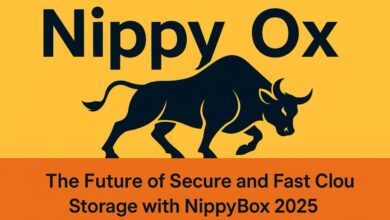Formula 43 Wheels: Revolutionizing Performance with Precision Engineering

Formula 43 is a renowned American brand specializing in high-performance, forged aluminum wheels, engineered for speed, strength, and precision. From race tracks to street builds, Formula 43 has become a preferred choice for car enthusiasts and professionals alike.
Rooted in meticulous craftsmanship and engineering mastery, the brand blends cutting-edge technology with old-world manufacturing expertise to deliver products that not only enhance performance but also complement the aesthetics of high-end vehicles.
The Origin Story: How Formula 43 Began
Founded in 2010 by Ralf Guennewig, a veteran metal spinner and engineer, Formula 43 was built on the idea that motorsport wheels could be lighter, stronger, and more customizable.
Guennewig’s experience in precision manufacturing and metal spinning, paired with a passion for automotive performance, led him to create a company where each wheel is handcrafted with strict attention to detail and tested for maximum durability.
Headquartered in Michigan, Formula 43 operates from a state-of-the-art facility where every stage of production—from forging to finishing—is handled under one roof.
What Sets Formula 43 Apart
Formula 43 is not just another wheel brand. Here’s what differentiates it:
-
Two-piece and three-piece modular construction for precision fitment
-
Forged aluminum billet for high strength-to-weight ratio
-
Customization in offset, bolt pattern, finish, and color
-
In-house design and production, ensuring quality control
-
Race-proven engineering backed by track testing
Their commitment to craftsmanship and innovation enables them to serve high-performance segments better than many mass-market wheel manufacturers.
Materials and Manufacturing Process
⚙️ Forged Aluminum
All Formula 43 wheels are constructed using 6061-T6 aerospace-grade aluminum, known for its:
-
Superior tensile strength
-
Corrosion resistance
-
Lightweight properties
🛠️ Multi-Piece Construction
-
Two-Piece (Modular): Combines a forged center and spun aluminum rim for lighter weight
-
Three-Piece: Adds an extra level of adjustability for width and offset tuning
🌀 Metal Spinning
Unlike cast wheels, which are poured into molds, Formula 43 employs metal spinning to shape the rim barrels. This technique strengthens the grain structure and improves impact resistance.
🧪 Quality Control
Each wheel undergoes rigorous testing:
-
Finite Element Analysis (FEA)
-
Impact testing
-
Radial fatigue tests
-
Runout balancing
-
Coating thickness and corrosion resistance inspection
Wheel Designs and Configurations
Formula 43 offers a variety of designs and styles, each optimized for a balance of aesthetics and performance. Popular configurations include:
| Model | Design Focus | Use Case |
|---|---|---|
| RAD S6 | Split six-spoke | Track and street |
| RAD S10 | Classic ten-spoke | Performance luxury |
| RAD S18 | Mesh-style | European cars |
| RAD S7R | Lightweight race | GT racing |
All models are available in custom diameters, typically 17″ to 20″, and widths ranging from 7” to 14”, depending on vehicle type.
Performance on the Track and Street
Formula 43 wheels are track-tested and street-tuned. Their modular design reduces unsprung mass, allowing for:
-
Faster acceleration
-
Improved cornering
-
Shorter braking distances
-
Greater responsiveness
Their performance credentials include use in:
-
SCCA (Sports Car Club of America)
-
NASA Racing Series
-
GT Road Racing
Track teams and private racers appreciate the balance of durability and lightweight structure, which enhances both safety and speed.
Customization and Aesthetic Options
Formula 43 empowers customers to tailor their wheels with full customization:
🎨 Finishes
-
Brushed clear
-
Matte or gloss black
-
Anodized bronze
-
Satin gunmetal
-
Transparent tinted coatings
🛠️ Hardware Options
-
Stainless steel or titanium fasteners
-
Hidden or exposed bolt patterns
-
Polished or color-matched lips
🔩 Bolt Patterns
They can accommodate virtually any lug pattern (4-lug to 6-lug), making them compatible with imports, domestics, and exotics.
Applications: Who Uses Formula 43?
Formula 43 wheels are found on a wide range of vehicles:
-
Track cars: Miatas, BMW M3s, Subarus, and Porsches
-
Street exotics: Lamborghinis, Ferraris, McLarens
-
Restomods and hot rods: Classic Mustangs and Camaros
-
Luxury customs: Mercedes-Benz AMG, Audi RS models
Thanks to their adaptability and modular design, Formula 43 serves niche tuners and large-scale motorsport teams alike.
Comparison with Other Performance Wheel Brands
Let’s compare Formula 43 with a few known performance wheel brands:
| Feature | Formula 43 | BBS | HRE | Volk Racing |
|---|---|---|---|---|
| Construction | Forged modular | Forged/Cast | Forged | Forged Monoblock |
| Customization | High | Medium | High | Low |
| Track Performance | Race-tested | Strong | Excellent | Excellent |
| Aesthetic Range | Wide | Conservative | Wide | Sport-focused |
| Price Range | $$$ | $$–$$$ | $$$$ | $$$ |
Formula 43 balances the customizability of HRE with the performance reliability of Volk, but with a more affordable pricing structure.
Customer Reviews and Community Insights
Across car forums, social media, and performance build showcases, users consistently praise Formula 43 for:
-
Excellent customer service during the design process
-
Flawless machining and finish quality
-
Precise fitment and balanced ride feel
-
Durability even in aggressive race conditions
Common remarks include:
“The best custom wheels I’ve run on my M3—great weight savings and killer looks.”
– Track enthusiast, North Carolina
“Formula 43 was the only brand that could give me the exact offset I needed for my widebody 911.”
– Porsche builder, California
Pricing and Availability
Formula 43 wheels are premium performance wheels, so expect a price range of:
-
$800–$1,200 per wheel for two-piece designs
-
$1,000–$1,500 per wheel for three-piece builds
They are available directly through:
-
The official Formula 43 site
-
Select performance tuners and race shops
-
Authorized distributors like Cantrell Motorsports
Build times usually range from 4 to 6 weeks, depending on design complexity.
Common Questions About Formula 43
Are Formula 43 wheels DOT or TUV certified?
They meet or exceed DOT standards, but TUV certification may vary by model and country.
Can I use them for winter driving?
While strong, they are performance-focused. Winter conditions and salt can degrade finishes unless protected.
Do they make monoblock wheels?
No, their specialization lies in modular 2-piece and 3-piece wheels only.
Are they compatible with Tesla or EVs?
Yes. Custom bolt patterns and offsets allow fitting on modern EVs.
What warranty is offered?
Formula 43 typically provides a limited structural warranty and finish warranty, covering manufacturing defects.
Conclusion: Why Formula 43 Leads the Pack
Formula 43 is not just a wheel brand—it’s a performance partner for anyone serious about handling, speed, and style. With industry-leading customization, forged strength, and race-bred engineering, Formula 43 has carved a reputation among tuners and pros alike.
Whether you’re building a street monster or prepping for your next podium finish, Formula 43 delivers the perfect fusion of form and function.
For more Technology articles visit Technology section



